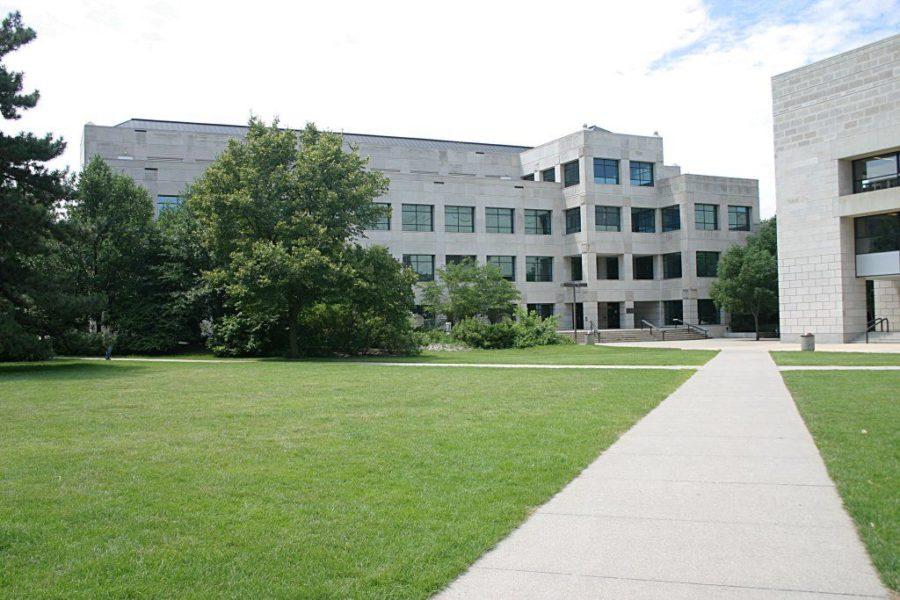New assistive technology lab to help students with disabilities
Durham Center is the location of the newly finished Digital Accessibility Lab. This lab will provide students with disabilities the technological resources they need for their classwork.
June 3, 2019
Students with disabilities will soon have a lab that caters to their technological needs in the classroom.
Iowa State University’s Computation Advisory Committee (CAC) approved $24,264 in May to create a lab in Durham Center that would provide the technology needed for students with disabilities, which will include speech-to-text and text-to-speech tools, a Braille display, a screen magnifier and screen reader.
The lab is mainly for students with physical and mental disabilities, but faculty and staff also can use it.
The CAC oversees the student technology fees and develop guidelines on how the money is spent.
“The decision making, which is what this came under, is we have some funds that are centrally allocated that are used to promote innovative project that kind of impact the campus overall,” Alex Ramirez, CAC chair, said.
Durham Center was chosen as the first location for the lab because it allows students to safely access the various bus routes circulating around campus, and Ramirez said the lab is in a separate location from the testing centers to allow students to walk in freely and use the technology.
This project is meant to be the catalyst in hopes of creating more assistive technology labs around campus. Ramirez said this location will evolve into more projects spread throughout campus.
“By then we better understand what those needs are rather than create a space and then realize ‘oops it’s too small’ or ‘oops it’s too big,’” Ramirez said.
In the 2018 campus climate survey, students expressed students with disabilities are not addressed enough by Iowa State University.
“There is not a lot of information that is shared about academic accommodations for students with learning disabilities, so I have not even bothered to try and request them,” one respondent wrote in the survey.
Another respondent wrote they did not feel supported in their disability accommodations.
“The campus has a long ways to go to be more inclusive and accessible for disabled students. Administrations commonly blow off students concerns and comments,” the respondent wrote on the survey.
After creating the space the challenge will be to figure out what the lab is missing and what can be improved. Kristen Constant, Interim Vice President IT Services Office of CIO, said the most helpful thing Iowa State students can do is to voice any problems or concerns with the lab. The ways students can communicate any concerns is through contacting the CAC or speaking directly to the professor of their class.
“It can be challenging sometimes it feels very exposing to give opinions especially about things like this, but we encourage people to do so in anyway they can, and just participate and speak up,” Constant said. “The only way that people feel safe speaking up is to know is we [the committee] really do want to hear and we’re really listening.”
Cyndi Wiley, coordinator for this project and University Digital Accessibility, said it can be hard for students to approach their professor, so they can contact an academic adviser or their fellow students. Ramirez said the CAC is currently trying to create a method by which students can contact the CAC directly otherwise they can contact the committee chairs directly.
“I can see looking back at myself, as an undergraduate student, I never approached my professors, I never went to talk to them … Let people know what the issues are if you’re not comfortable talking to your instructor,” Wiley said.
The purpose of this project is to make sure all students feel that they are included, whether it is through voicing their concerns or if the lab caters toward their needs.
The lab is expected to be completed by fall 2019, according to a press release from Information Technology Services.







